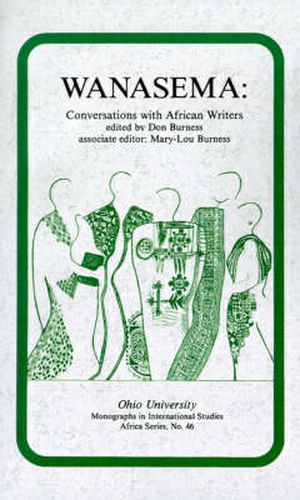Readings Newsletter
Become a Readings Member to make your shopping experience even easier.
Sign in or sign up for free!
You’re not far away from qualifying for FREE standard shipping within Australia
You’ve qualified for FREE standard shipping within Australia
The cart is loading…






There is a tendency to regard African literature as a homogenous product. Certainly it is true that African writers have created a vibrant, modern literature. Nevertheless, they come from specific societies and reflect vastly differing worlds. Wanasema attempts to show some of the many faces of African literature. Dramatists, poets and novelists speak in these pages. They write in French, English, Portuguese, Arabic and indigenous languages. Some are Christian; others are Muslim. A variety of subjects are discussed, including the status of women, history, religion, politics, dress and education. Taken together, the interviews in Wanasema suggest that Western students of Africa would do well to learn the languages of Africa. They suggest, too, taht there is a need to investigate further the relationship between Islamic North Africa and Sub-Saharan Africa, and finally, that oral literature continues to be a vast marketplace for scholars. This book should interest African Studies specialists, of course, but also those whose concerns include literature, history and contemporary events in the non-Western world generally.
$9.00 standard shipping within Australia
FREE standard shipping within Australia for orders over $100.00
Express & International shipping calculated at checkout
There is a tendency to regard African literature as a homogenous product. Certainly it is true that African writers have created a vibrant, modern literature. Nevertheless, they come from specific societies and reflect vastly differing worlds. Wanasema attempts to show some of the many faces of African literature. Dramatists, poets and novelists speak in these pages. They write in French, English, Portuguese, Arabic and indigenous languages. Some are Christian; others are Muslim. A variety of subjects are discussed, including the status of women, history, religion, politics, dress and education. Taken together, the interviews in Wanasema suggest that Western students of Africa would do well to learn the languages of Africa. They suggest, too, taht there is a need to investigate further the relationship between Islamic North Africa and Sub-Saharan Africa, and finally, that oral literature continues to be a vast marketplace for scholars. This book should interest African Studies specialists, of course, but also those whose concerns include literature, history and contemporary events in the non-Western world generally.